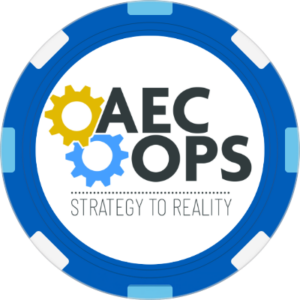
Stu Haney
Stu has over 35 years of experience in the AEC industry. A teacher and a coach by nature, what’s most rewarding for Stu is helping others reach their full potential.
Why Clear Expectations and Accountability Lead to Higher Adoption
Leadership sets the tone for how processes and tools are adopted within a firm. But it’s not enough to invest in technology or introduce new procedures. To see meaningful adoption—especially when it comes to project management—leaders must be explicit about expectations and hold their teams accountable for following through.
In many AEC firms, junior staff and newer project managers are often quick to embrace new tools like project planning features in Deltek Vision or collaborative platforms like Monday and Asana. They see these systems as helpful in managing projects efficiently. However, the enthusiasm wanes when they notice that senior project managers, who have more experience and influence, don’t engage with these tools. If these seasoned professionals are allowed to bypass the new systems without consequence, it sends a message to everyone else: “This isn’t really required.”
This is where many firms fall short—not in selecting or implementing tools, but in maintaining clear, enforceable expectations around their use. For any project management tool to succeed, leadership must set a firm expectation that these tools are non-negotiable and critical to the firm’s way of working. This means communicating clearly that the tools are part of the firm’s standard operating procedures and not just optional add-ons.
However, setting expectations is only half the battle. Accountability is the other critical piece.
Leadership must hold not only junior staff but also senior managers accountable for using the tools as intended. When project managers—especially tenured ones—are allowed to sidestep processes without consequence, it undermines the firm’s efforts and demotivates the rest of the team.
One firm I worked with struggled with this exact issue. They invested in a robust project management tool, but within a few months, they noticed inconsistent adoption.
Junior staff were diligent at first, but when they saw senior project managers ignoring the tool and reverting to spreadsheets, they followed suit. The firm experienced disjointed project management, incomplete data, and increased rework—all because the leadership failed to enforce their own expectations.
On the flip side, firms that hold all levels accountable to process adoption see results.
Consistency breeds better project outcomes, and teams—regardless of their experience—come to rely on these tools to deliver high-quality work.
Key Takeaway: Clear expectations and accountability from leadership are essential for tool and process adoption. Without consistent enforcement, even the best project management systems will fail to achieve their potential.



